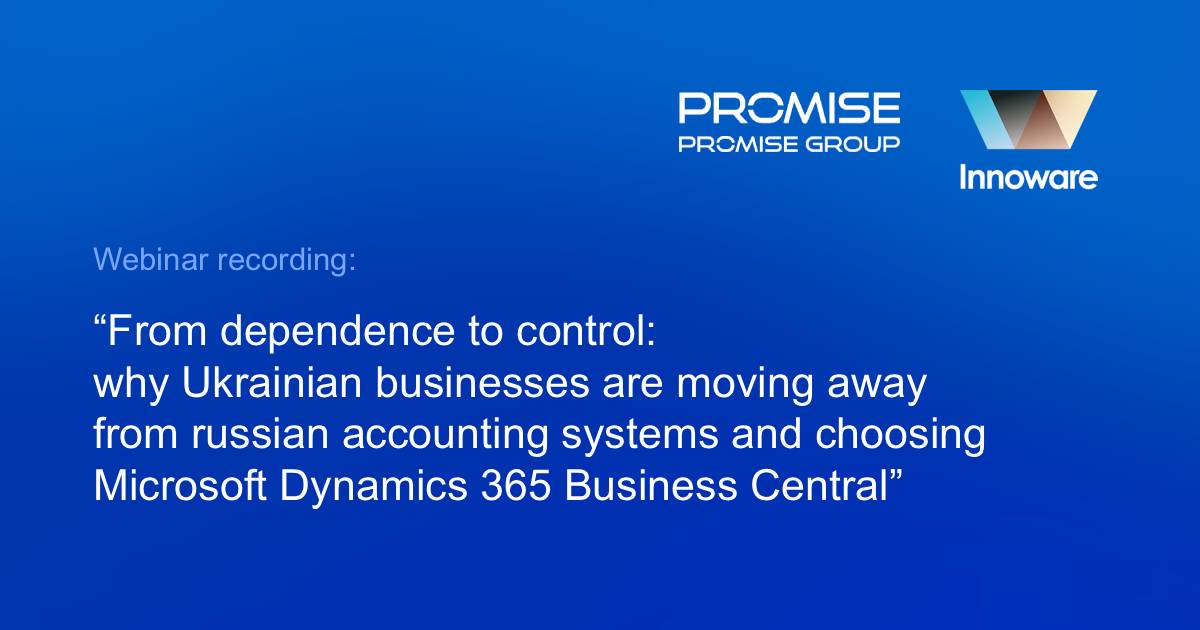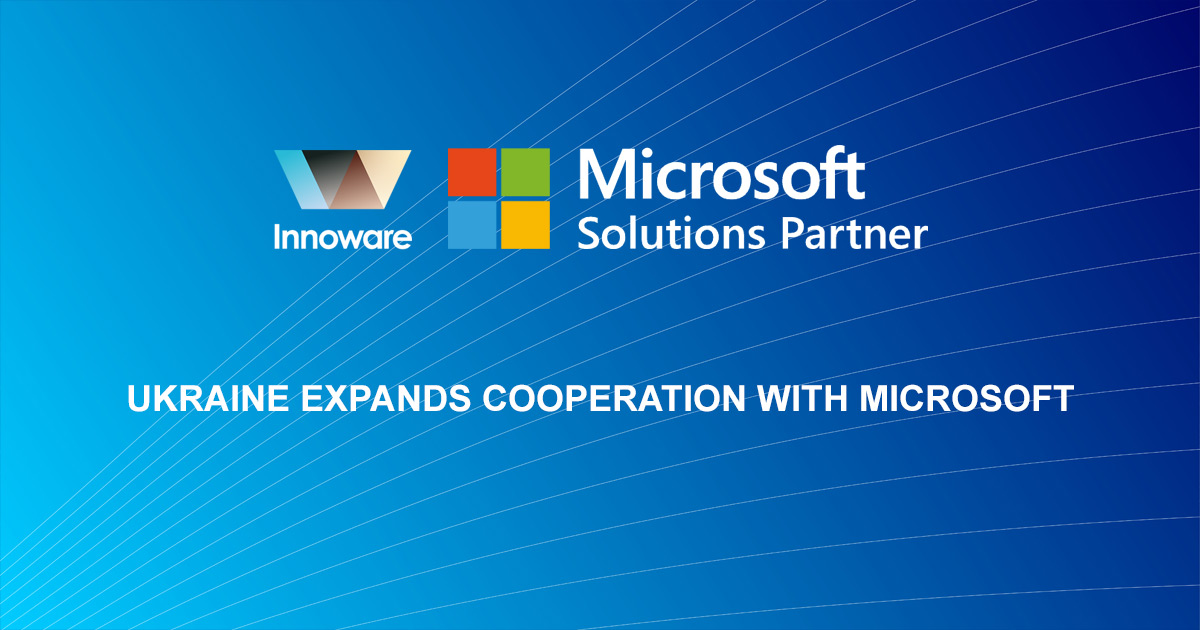
Why does Ukrainian business still use russian programs for enterprise management and what is the danger? Dmytro Popinako in an interview for the “Economichna Pravda” portal
Russia continues to profit from business software in Ukraine. What are the risks?
Even though the full-scale war with russia has been going on for more than 2.5 years, Ukrainian enterprises continue to use software related to the aggressor country. This creates serious risks for the state and business, because russian IT products can become a tool for espionage, interference in the activities of enterprises and even economic blackmail. In the new realities, Ukrainian business faces the question: why is it so important to get rid of dependence on russian software and what steps should be taken to ensure the security and stability of enterprises?
Dmytro Popinako, CEO of Innoware, answered on these questions in an interview with the “Economichna Pravda” portal
Why does Ukrainian business still use Russian enterprise management software, and what are the dangers?
For more than 2,5 years, russia’s full-scale invasion has continued, and the enemy has not stopped terrorizing Ukraine. Alongside the physical war, which Ukrainians have almost become accustomed to, russia is actively attacking us in cyberspace.
While the state and society have found effective means to counter the invaders on land, in the air, and at sea, we sometimes voluntarily open doors to the enemy in cyberspace, inviting them into our IT systems, particularly into enterprise management systems.
Risks of Monopoly Development
The Ukrainian technology market has long been under the control of software owned by russian individuals and legal entities.
This is especially true for enterprise management software, accounting systems, and internal bookkeeping programs. A vivid example is the russian system “1C,” created in 1991, and its disguised European clone “BAS.”
Understanding the risks of doing business in Ukraine during wartime, “1C” transferred its technological solutions to a company that distributes the “BAS” system, positioning it as a Polish product. At the same time, the beneficiary of both “1C” and “BAS” is the same person— a sanctioned Russian billionaire.
It is evident that the monopolistic position of this hostile software in Ukraine exposes domestic enterprises to serious cyber risks. By using Russian systems or their clones, many Ukrainian companies essentially grant access to their confidential data to the intelligence services of the aggressor country. In 2023, the Security Service of Ukraine (SBU) warned that using software products under sanctions by government institutions posed a real threat to the confidentiality, integrity, and availability of data in automated systems.
Russia has repeatedly demonstrated its ability to harm the Ukrainian economy through cyberattacks, such as the “Petya” virus in 2016, which, according to experts, caused more than 400 million dollars in damages. In a full-scale war, where the enemy no longer hides its intentions, the vulnerability of the state and the private sector becomes a critical issue.
Ban or Gradual Replacement of Russian Software
Solving the problem of the dominance of Russian software in Ukraine can be approached in two ways. The first is a voluntary transition by Ukrainian enterprises to safer alternatives of Ukrainian or global origin. The second is a government ban on the distribution of software affiliated with Russia or other sanctioned countries in Ukraine, leading to the gradual replacement of Russian software products.
It is important to note that forward-thinking Ukrainian companies are already choosing the first option, understanding the risks of using Russian software. However, a significant portion of businesses are not ready to abandon Russian accounting systems due to their low cost and the high expenses involved in switching to safer and more advanced alternatives.
The state is also moving toward the second scenario. On August 19, 2024, the government registered bill No. 11492, which proposes banning the use of Russian software, including in the private sector. The bill still needs to be discussed in parliament and involve experts, but the government is confident that its implementation will improve Ukraine’s cybersecurity.
Threat to the Economy and Counteraction Strategy
The main dilemma is that an immediate ban on such software without a prepared transition plan could lead to significant operational problems for many businesses that depend on Russian accounting systems. This poses substantial risks to Ukraine’s economy.
To prevent these risks, the authorities must develop a long-term roadmap that includes cooperation with businesses for a gradual but rapid transition to safer alternatives.
This process will require significant financial investment, time, and the involvement of professionals. However, it is necessary to ensure cybersecurity, economic independence, and Ukraine’s Euro-Atlantic integration.
How Can Businesses Protect Themselves in the New Reality?
Many companies are already planning to replace their software with safer alternatives. For example, the world’s largest software producer, Microsoft, offers over 80 products for accounting, enterprise management, and business process support under the Microsoft Dynamics brand.
The software market is transforming, and competition now occurs not between individual products but between ecosystems such as Microsoft, Google, Amazon, Apple, and Oracle. Therefore, when choosing a replacement for 1C or BAS, attention should be paid to products from one of the major manufacturers’ ecosystems.
Companies should also consider that Ukraine is preparing to join the EU and NATO, which involves meeting international standards, including the use of software that meets security requirements and is compatible with other member countries. This will increase our competitiveness on the international stage and ensure long-term stability and autonomy.
Economy, Taxes, and the Frontline: Countering the Aggressor
By using products tied to Russian beneficiaries, Ukrainian businesses not only create security risks but also finance aggression against Ukraine. The funds paid for Russian licenses end up in Russia’s budget, which funds the war. It is only a matter of time before Russia decides to use the dependency of Ukrainian businesses on Russian IT products for military purposes against Ukraine.
It is time to realize that every choice we make shapes Ukraine’s future. Now, more than ever, it is crucial to choose safe and reliable solutions that will strengthen the Ukrainian front, protect our military and civilians, and bring us closer to victory in the war.
INNOWARE USA
501 Silverside Rd, Ste 105, # 4995,
Wilmington, Delaware, 19809-1376,
United States
Tel.: +1(302)4672024
E-mail: info@innoware.com
INNOWARE UAE
Premises 407-FZBA 055, 4th Floor, Sheikh Rashid Tower, Dubai World Trade Centre,
Dubai, United Arab Emirates
Tel.: +971588894591
E-mail: info@innoware.ae
INNOWARE UKRAINE
3, Sholudenka St., office 204 (Cubic BC)
Kyiv, Ukraine, 04116
Tel.: +380(44)4902220
E-mail: info@innoware.com


